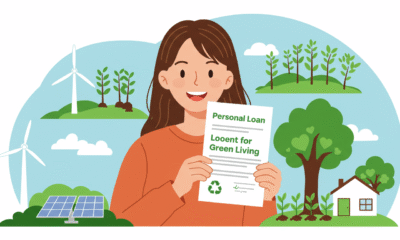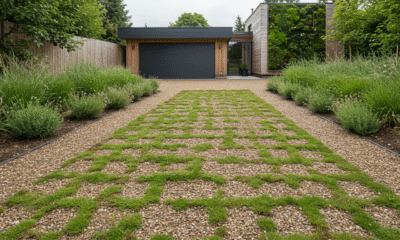

Environment
Wise Spending Habits for Eco-Friendly Consumers
Are you committed to being an environmentally friendly consumer? There are a lot of things that you need to keep in mind.
If you are serious about lowering your carbon footprint to protect the environment, then you will want to produce as little waste as possible. You will want to reduce the amount of raw materials that are extracted to create the products that you consume.
This means that it is a good idea to live a frugal lifestyle. Frugality is both good for your wallet and the planet.
Frugal Living Tips as an Environmentally Friendly Consumer
Lately, you may have been giving a lot of thought as to how you spend your hard-earned money. You may feel like you are letting cash figuratively slip through your fingers on things you don’t really need, or that you are paying more for products and services than you should. This is not just bad for your finances.
You are also consuming a lot of products that leave a larger carbon footprint, which means that you are hurting the planet with your unnecessary consumption as well. This is one of the reasons that ethical consumerism hinges on frugal living.
The first thing you should do is give yourself a gold star and a pat on the back for wanting to be more financially responsible. Paying attention to your finances and lowering your carbon footprint in the process is important. Fortunately, you should find that the wiser you become about spending your money, the more cash you will have at the end of each month and the lower your carbon footprint will be.
As for how to go about doing this, consider the following words of advice to practice eco-friendly, sustainable consumerism.
Cut Back on “Money Suckers”
Chances are good you have at least one “money sucker” that is draining cash from your account really quickly. A common example is eating out. As Clever Girl Finance notes, buying lunch out every day to the tune of $10 or so a meal means you are shelling out $2,600 a year for those takeout sandwiches, salads, chips and iced teas. Rather than completely cut out this daily treat, cut back on it. Bring your lunch from home two or three days a week and put the money you are not spending into a savings account or towards credit card debt. You can also use the freed-up funds to add to your grocery budget and try some new fancier foods.
Know That Not All Purchases Will Be “Fun”
In a perfect world, spending money would be a pleasurable experience each and every time. But part of becoming more financially and environmentally responsible is realizing that you will also buy plenty of important and stress-saving services that are not necessarily fun but are very valuable and important. Examples include scheduling an annual checkup of your HVAC unit, bringing your car in for regular maintenance and investing in an identity theft prevention program. You will find that some of these solutions will save on energy. This will lower your energy bill and leave a lower carbon footprint.
While these may not seem like traditionally fun expenses, they can save you tons of stress and money in the long run by preventing your AC from conking out when it’s 95 degrees outside, your car from having more costly issues and your identity from being stolen. To make these necessary expenses as friendly on your budget as you can, look for discounts and sales; for instance, when shopping for an identity theft protection program, these LifeLock coupons can help you save money.
Think About the Long-Term Advantages of Your Purchases
As Rule One Investing notes, too many purchases are impulse decisions. This can especially become an issue for larger and costlier items that can put a serious dent in your finances.
To be smart about your expenses, think about how these purchases will impact you in the future. For instance, will the pricey new couch that you love put you into debt and cause you to pay a lot more for it over time, when you factor in interest payments? Will the new phone that you want last for several years or will you want to replace it again when the new model comes out? These questions can help you to decide if something is really worth purchasing. In the case of the couch, you may be able to secure a zero percent interest loan through the store and reviews may show the couch is durable and well-made. As for the phone, you may realize your current smartphone works just fine and you can pass on the new tech.
Take It One Expense at a Time
You work too hard to waste your dollars on high-priced items you don’t really want or need. By identifying those purchases that take a lot out of your account and cutting back a bit, investing in proactive services that will save you money and time in the long run. And taking the time to weigh as many purchases as possible, you will be well on your way to being wiser with your money.
Sustainable Living and Frugality Go Hand-in-Hand
There is a strong overlap between being frugal and protecting the planet. The advice listed above can help you be eco-friendlier and save money at the same time.


 Environment12 months ago
Environment12 months agoAre Polymer Banknotes: an Eco-Friendly Trend or a Groundswell?

 Features11 months ago
Features11 months agoEco-Friendly Cryptocurrencies: Sustainable Investment Choices

 Features12 months ago
Features12 months agoEco-Friendly Crypto Traders Must Find the Right Exchange

 Energy11 months ago
Energy11 months agoThe Growing Role of Solar Panels in Ireland’s Energy Future




























